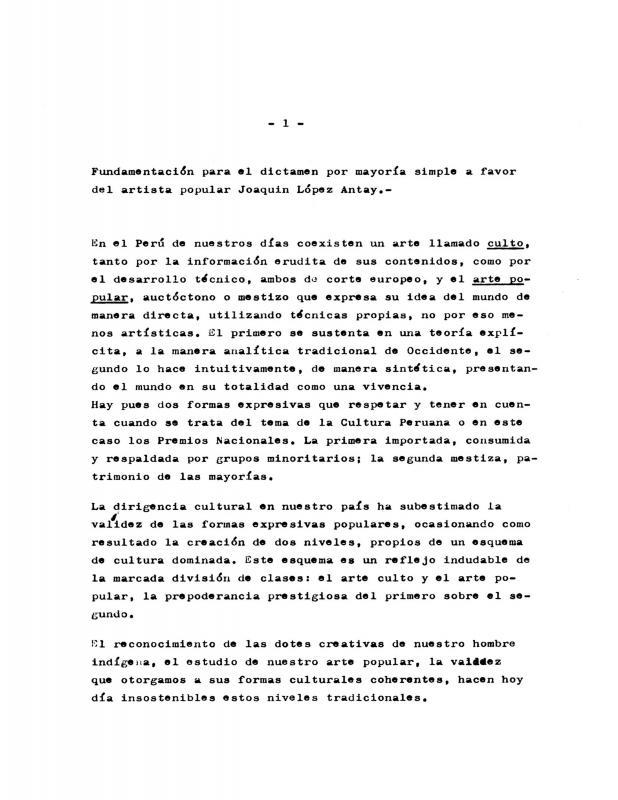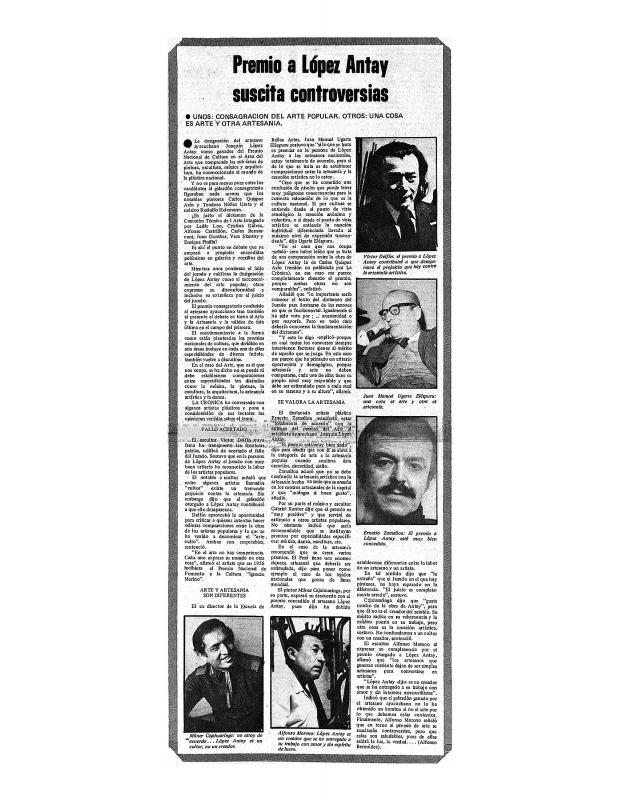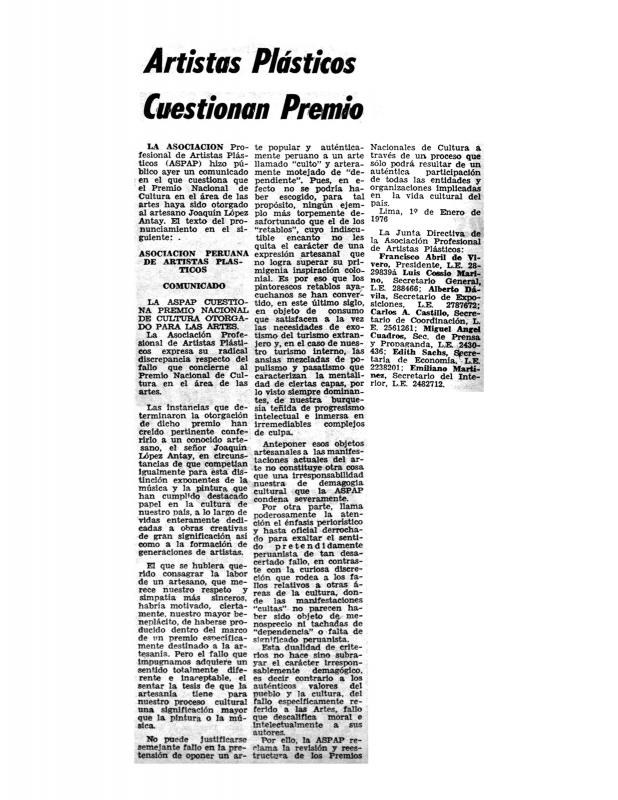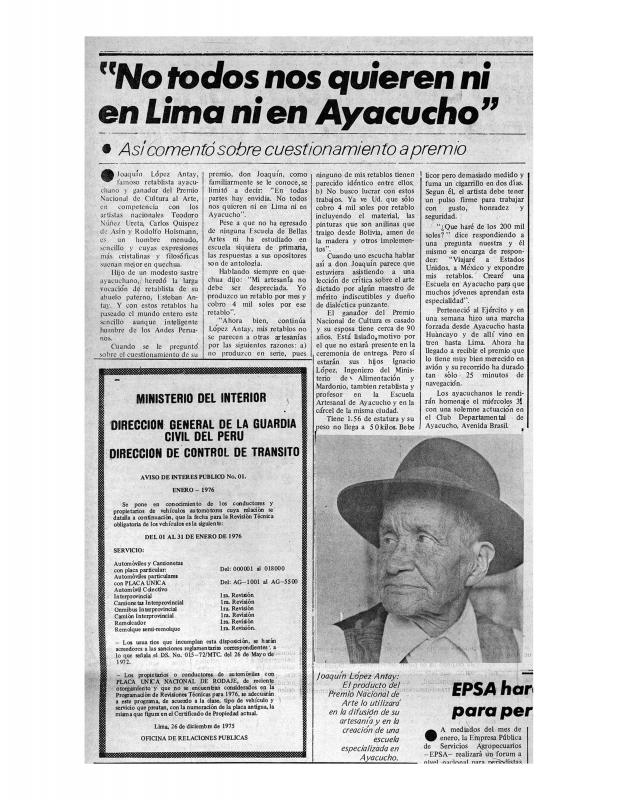This is the transcript of the speech given by the Peruvian painter Teodoro Núñez Ureta at the banquet that was held to make amends after he was passed over as a candidate for the 1975 National Culture Prize, which was instead awarded to Joaquín López Antay, the altarpiece artist from the Andean region of Peru.
The board of directors of ASPAP (Asociación Peruana de Artistas Plásticos) [Peruvian Association of Visual Artists] violently opposed the jury’s decision. The resulting disagreements between the members of the association led many of them to leave ASPAP and start SUTAP (Sindicato Único de Trabajadores en las Artes Plásticas) [Sole Visual Arts Workers Union] which, however, did not last long. The Union’s name was an attempt to associate it with SUTEP (Sindicato Único de Trabajadores de la Educación Peruana) [Sole Peruvian Education Workers Union], a group associated with the radical left wing.
An announcement on December 26, 1975 confirmed that the National Culture Prizes (for the 1973–74 biennium) had been awarded by the Peruvian government through the Instituto Nacional de Cultura to honor the greatest contributions to the development of Peruvian culture. The jury’s decision in the art category (which had traditionally included painting, sculpture, music, and architecture) ignited one of the most heated debates in the history of Peruvian art. The ensuing controversy underscored simmering tensions and suspicions regarding the cultural policies of the revolutionary government of the armed forces led by General Juan Velasco Alvarado (1968–75). This administration claimed to be committed to a progressive agenda, a claim supported mainly by the Agrarian Reform of 1969 which was accompanied by the government’s enthusiastic attempt to glorify the image of the peasant population and lifestyle at the expense of other forms of cultural expression that were considered more “Western.” On this occasion the prize was awarded to Joaquín López Antay (1897–1981), who was chosen over well-known visual artists such as Carlos Quízpez Asín (1900–83) and Teodoro Núñez Ureta (1912–88) and the German-born academic musician Rodolfo Holzmann (1910–92).
[For more on the subject of this event, see the following articles in the ICAA digital archive: by Alfonso Castrillón, Leslie Lee, and Carlos Bernasconi “Fundamentación para el dictamen por mayoría simple a favor del artista popular Joaquín López Antay” (doc. no. 1135896); by Alfonso Bermúdez “Premio a López Antay suscita controversias. Unos: consagración del arte popular. Otros: una cosa es arte y otra artesanía” (doc. no. 1135879); by Francisco Abril de Vivero, Luis Cossio Marino, and Alberto Dávila “Artistas plásticos cuestionan premio” (doc. no. 1135960); and (anonymous) “‘No todos nos quieren ni en Lima ni en Ayacucho’: así comentó sobre cuestionamiento a premio” (doc. no. 1135930)].




